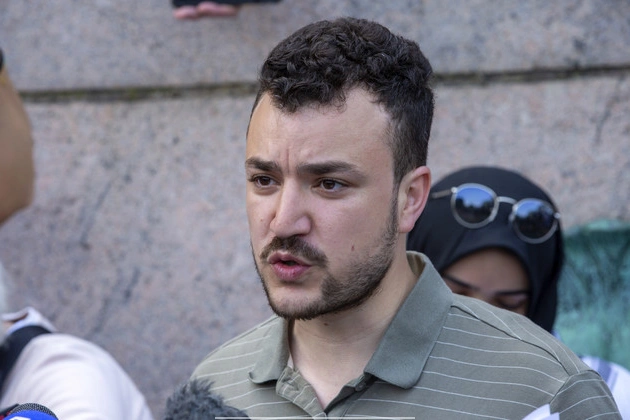
Legal Battle Over Deportation of Mahmoud Khalil
A recent ruling by a federal judge has shed light on the ongoing legal battle surrounding the deportation of Mahmoud Khalil, a pro-Palestinian activist targeted by the Trump administration. The judge’s decision highlighted the potential unconstitutionality of the administration’s actions, raising important questions about due process and individual rights.
Background of the Case
Mahmoud Khalil, a legal U.S. resident and former Columbia University graduate student, found himself in the crosshairs of immigration authorities without any criminal charges against him. Despite his lawful status in the country, Khalil was detained in Louisiana and faced deportation proceedings initiated by the Trump administration.
Notably, Khalil was part of a group of foreign-born pro-Palestinian academics who were subjected to similar deportation threats, despite holding valid visas or green cards. While some of his counterparts were released from detention, Khalil remained incarcerated, fighting his legal battle on multiple fronts.
Key Legal Findings
The recent court ruling, delivered by U.S. District Judge Michael Farbiarz, cast doubt on the legal basis for Khalil’s deportation. Judge Farbiarz expressed concerns about the administration’s invocation of a seldom-used provision to justify Khalil’s removal, questioning the clarity and constitutionality of the decision-making process.
Furthermore, the judge highlighted the lack of transparency regarding the alleged adverse foreign policy consequences linked to Khalil’s activities, indicating a potential violation of due process rights. The ruling underscored the need for a more thorough legal review before any definitive action could be taken against Khalil.
Implications and Next Steps
As the legal battle continues, Khalil’s legal team remains steadfast in their defense, arguing that the administration’s actions are politically motivated and lack a solid legal foundation. The focus now shifts to providing additional evidence and arguments to secure Khalil’s release and prevent his unjust deportation.
While the court’s decision represents a significant milestone in Khalil’s case, the road ahead remains challenging. With parallel legal proceedings ongoing in different jurisdictions, the outcome of Khalil’s fight against deportation hangs in the balance, awaiting further legal deliberations and evidentiary submissions.
Conclusion
The legal saga surrounding Mahmoud Khalil’s deportation underscores the complexities of immigration law and the importance of upholding constitutional rights in such cases. As the legal battle unfolds, the implications of this case extend beyond Khalil’s individual circumstances, raising broader questions about due process, governmental authority, and the protection of immigrant rights in the United States.











